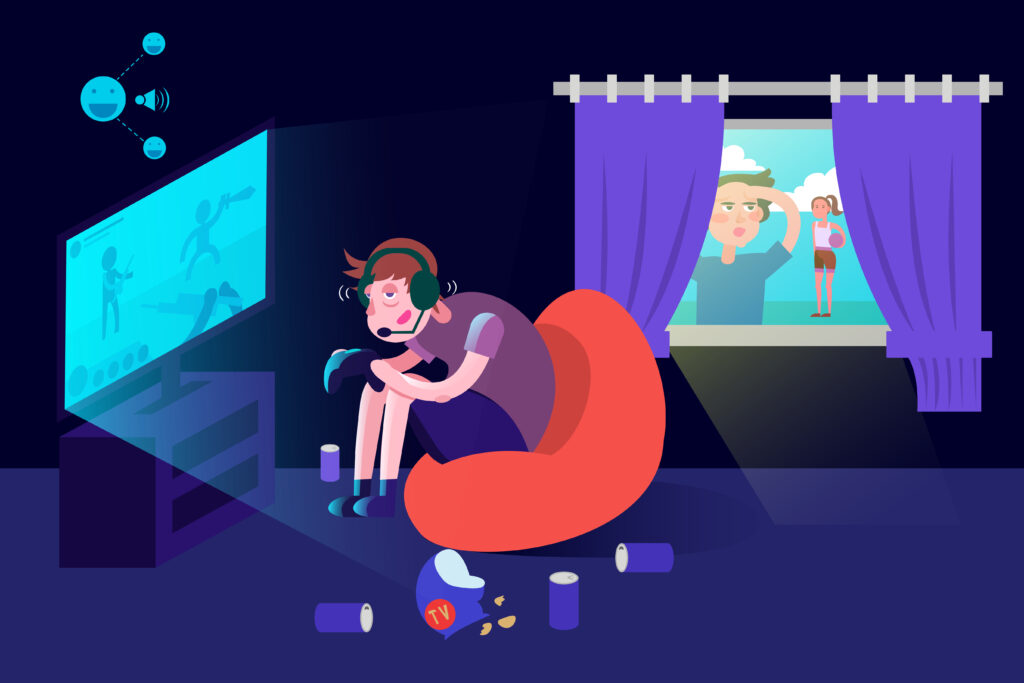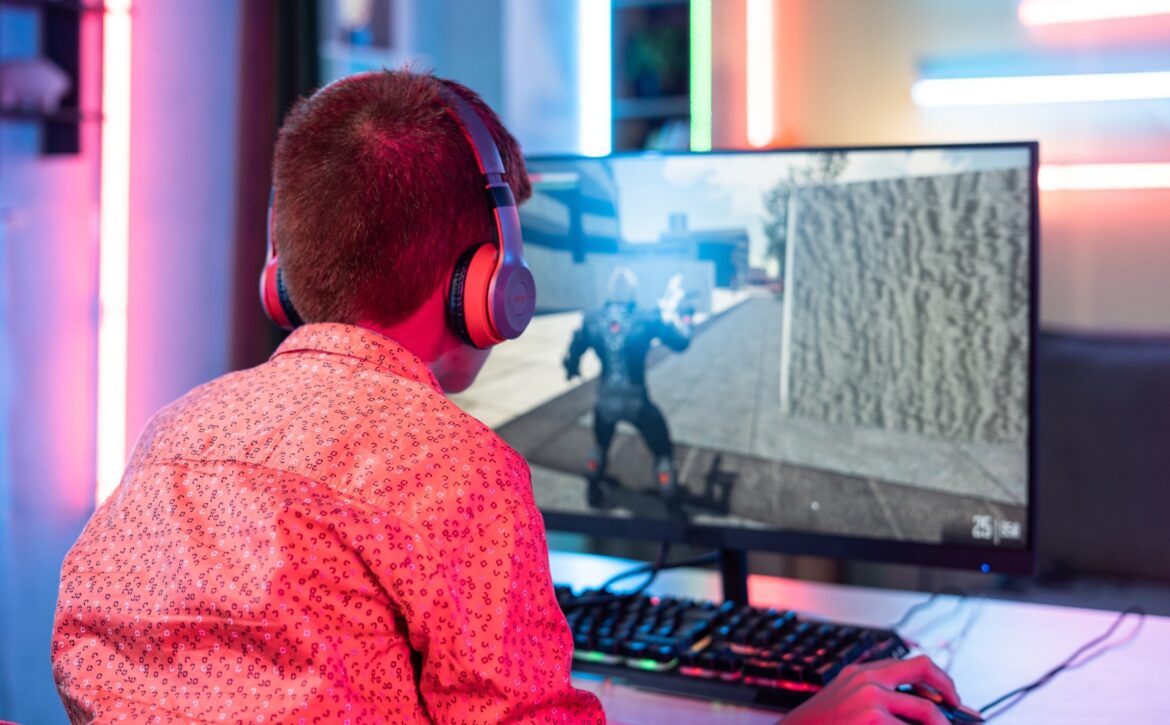A condition known as gaming addiction, often referred to as video game addiction or gaming disorder, is characterised by excessive and compulsive video game playing that interferes with daily living. Younger generations, who have grown up with ready access to technology and online games, are especially worried about it.
The World Health Organization states that gaming addiction is a mental health condition that affects people of all ages and genders. According to studies, between 1% to 10% of gamers suffer from video game addiction, with teenage boys experiencing the highest rates.

Due to the extensive availability of video games on multiple platforms, such as smartphones, tablets, and gaming consoles, the prevalence of gaming addiction has skyrocketed in recent years. As a result, it’s critical to comprehend the dangers and signs of gaming addiction and to get support when needed.
What is Gaming Addiction?
A mental health issue called gaming addiction, sometimes known as video game addiction or gaming disease, is characterised by excessive and compulsive video game playing that interferes with daily living. It affects people of all ages and genders and is recognised by the World Health Organisation as a mental health problem.
Several essential traits that characterise the condition include:
- Loss of control: The inability to regulate one’s playing behaviour, including how intensely and frequently they play video games.
- Priority is given to gaming: Prioritising gaming over other tasks including work, school, socialising, and maintaining one’s cleanliness.
- Continued usage despite adverse effects: Playing video games despite adverse effects include decreased productivity, subpar academic performance, social isolation, and issues with physical and mental health.
- Withdrawal symptoms: When trying to cut back or stop gaming, withdrawal symptoms can appear, including anxiety, depression, irritability, and restlessness.
- Tolerance: The accumulation of a tolerance for video games that makes longer sessions need to have the same degree of enjoyment.
Effects Of Gaming Addiction
Numerous detrimental effects on a person’s physical, mental, and social well-being can result from gaming addiction. The following are a few of the most typical effects of gaming addiction:
- Physical health issues: Playing too many video games can result in a sedentary lifestyle, which raises your risk of developing diabetes, obesity, and other health issues as well as cardiovascular disease.
- Mental health issues: Several mental health conditions, such as depression, anxiety, social phobia, and attention deficit hyperactivity disorder (ADHD), have been related to gaming addiction.

- Poor academic or professional performance: Because they prioritise gaming above other activities, people with gaming addiction may find it difficult to fulfil their academic or professional duties.
- Social isolation: Playing too many video games might result in a loss of genuine connections with friends and family as well as social isolation.
- Financial issues: Spending a lot of money on video games, consoles, and other gaming-related expenses can be a sign of gaming addiction.
- Sleep disturbances: Gaming addiction can cause sleep problems, which can result in insomnia, sleep loss, and daytime weariness.
- Aggression and irritability: Some people who are addicted to gaming may become more aggressive and irritable, especially when their gaming is interrupted or limited.
Prevention of Gaming Addiction
Implementing measures to lower the likelihood of developing the condition is part of preventing gaming addiction. The following are some helpful suggestions for avoiding gaming addiction:
- Set gaming time restrictions: It’s important to establish and adhere to daily gaming time restrictions. Think about utilising a timer or tracking and limiting screen time software.
- Encourage a variety of activities: To ensure a balanced lifestyle, encourage a variety of activities like sports, hobbies, and socialising.
- Observe the age and content ratings: Make sure the games being played are appropriate for the player’s age and don’t have any violent or addictive elements.
- Set up a schedule: Schedule gaming time into your daily schedule along with other activities like exercise, school, job, etc
- Encourage social connection: As social engagement can help lower the risk of addiction, encourage gaming with friends or family.
- Model healthy behaviour: Model good behaviour by limiting your own screen time and participating in other activities as a parent or carer.
- Educate about the risks: Inform kids and teenagers about the dangers of gaming addiction and the significance of playing responsibly.
Individuals can lower their chance of becoming game addicts and encourage a balanced, healthy lifestyle by putting these suggestions into practice.
A dangerous disorder known as gaming addiction can have a detrimental impact on a person’s physical, emotional, and social well-being. To stop people from becoming addicted to gaming and to aid those who are already suffering, it is crucial to spread knowledge of the illness and its effects.
Setting time restrictions and creating a balance between gaming and other activities are both aspects of responsible gaming. By educating kids and teenagers about the dangers of gaming addiction and providing positive gaming role models, parents, caregivers, and educational institutions can play a significant role in promoting responsible gaming.
